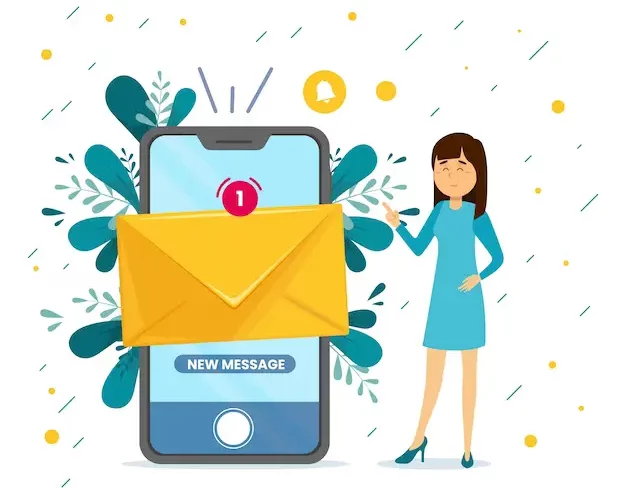Email and SMS marketing have become increasingly effective tools for propelling corporate growth as companies enter the digital age. In Nigeria, a thriving and dynamic market, email and SMS marketing have a lot of untapped potential. This study examines how firms can take use of this synergy to achieve maximum impact.
Through an analysis of the Nigerian market, a look at successful tactics and industry best practices, and an examination of actual case studies, this article seeks to offer insightful analysis and practical advice to companies hoping to use SMS and email marketing to drive growth in Nigeria.
In addition to exploring the particular opportunities and difficulties that Nigerian firms encounter, this article offers a thorough how-to guide for maximizing the combined effectiveness of email and SMS marketing to promote long-term business growth.
Nigeria’s Economic Environment
Nigeria boasts one of the biggest economies in Africa, driven by the country’s oil riches and expanding middle class. Businesses now have a plethora of alternatives to reach a customer base that has more purchasing power. A favorable climate for business growth has also been created by the country’s growing entrepreneurial spirit, which has resulted in a surge in small and medium-sized businesses.
Market trends and consumer behavior
Mobile phones are playing a major role in the lives of Nigerian consumers, who are growing increasingly tech-savvy. Since most people use mobile devices to access the internet, mobile marketing is essential. Moreover, Nigerian consumers like customized brand interactions and are more inclined to patronize companies that provide these kinds of services. It can be beneficial to comprehend these industry trends.
You may read also: Top 15 Ecommerce Websites For Online Shopping In Nigeria
Difficulties in the Nigerian Business Sector
Nigeria has a lot of promise for economic expansion, but there are obstacles to be overcome. Effective communication channels can be impeded by infrastructure limitations, such as unstable power supplies and insufficient internet coverage. The business environment is further complicated by local competitors and the need for regulatory compliance. Nonetheless, companies can overcome these obstacles and put themselves in a successful position by utilizing the power of email and SMS marketing.
The Many Roles of Email Marketing
Over the past few decades, email marketing has taken on new duties. Email is becoming more than simply a means of dispersing general bulletins; it may also be used for more focused outreach, nurturing, and remarketing assistance.
A post by Campaign Monitor identifies 12 categories of emails that you ought to be sending:
- Welcome Email
- e-newsletter
- Announcement of a new product
- Promotional email
- Email testimonial
- Re-engagement email
- Abandoned cart email
- Transactional email
- Email with tips and training
- Email replenishment
- Email upgrade
- Email survey
To maximize the impact of email marketing in Nigeria
1. Strategic Email Campaign setup
Developing a successful campaign should be the main goal for businesses. This involves determining exactly who their target market is, establishing quantifiable objectives, and creating a captivating value offer that entices users to engage and take action.
2. Segmenting and Personalization
Businesses may personalize their communications and deliver relevant material that resonates with users by segmenting their email subscriber base based on demographics, preferences, and behaviors. Sending customized emails that address the unique requirements and preferences of clients can increase open rates, click-through rates, and conversions for businesses.
3. Crafting Captivating Email Subject Lines and content
The secret to effective email marketing is to create captivating content for users. Nigerian customers value interesting material and useful information. Businesses can maintain subscribers’ interest and forge closer bonds with their audience by creating a content mix that is both entertaining and educational.
4. Optimizing Email Deliverability and Open Rates
Businesses should concentrate on optimizing deliverability in order to guarantee that emails land up in the inboxes of the intended recipients. This entails putting best practices into action, like keeping a clean subscriber list, working with reliable email service providers, and keeping an eye on email performance indicators. Deliverability and open rates are two key metrics that firms may use to gauge the success of their email marketing campaigns in Nigeria.
Using SMS Marketing to Its Full Potential: Successful Strategies for Nigerian Companies
Businesses in Nigeria can benefit from the special advantages that SMS marketing offers. Time-sensitive promotions, event notifications, and customized offers can be effectively communicated with clients by SMS due to its broad reach and high open rates. Furthermore, SMS marketing can reach a sizable section of the populace, including those without internet access, due to the widespread use of mobile phones in Nigeria.
Types of SMS text marketing campaigns
1. Promotional SMS marketing campaigns
Campaigns for promotional SMS marketing aim to spark interest in a good or service. They might consist of rebates, coupons, and other exclusive deals. Freebies are usually a terrific method to draw customers in and increase foot traffic to your store because everyone enjoys a good incentive. If there is an effective call to action (CTA), this is even more effective.
2. Transactional SMS marketing campaigns
SMS marketing that is transactional is sent in reaction to a situation or activity. Customers that participate in these campaigns receive time-sensitive information including delivery alerts, appointment reminders, password resets, and product releases. These communications have a high open rate and can effectively increase conversions since they are pertinent and timely.
3. Conversational SMS marketing campaigns
Text responses are used as triggers in conversational SMS marketing, which sets it apart from other traditional SMS marketing strategies. This two-way SMS marketing campaign simulates human dialogue by having your brand and the customer respond to each other automatically.
You may also read: Top 12 Online Payment gateway for small and medium business in Nigeria
How to start using SMS marketing
Compared to other marketing techniques like email marketing, SMS marketing offers a number of advantages. One benefit of SMS marketing is that it has an average open rate of 98%, which is five times higher than email’s 20%. This means there’s a greater likelihood that your audience will receive your text message than your email. Additionally, SMS marketing has a higher click-through rate than email—9.18% versus 2.5%.
A clear and succinct message delivered to your target group via SMS marketing works wonders. You can use it to advertise your business with a higher possibility of response and action and tell your customers about a weekend deal or promotion.
5 SMS marketing best practices to follow
After discussing SMS marketing for businesses, let’s have a look at some recommended practices to maximize the results of your campaigns.
1. Only text those who have given their consent.
Send SMS only to those who have given you permission to do so. Including an opt-in form on your website or other online channels is the best method to accomplish this.
Sending a thank-you SMS to a new subscriber and asking them to confirm their opt-in with a simple “Yes” or “No” response is a smart idea, even if you have an opt-in. The opt-in message from Flexispot, which includes their company name to identify the sender before validating subscriptions, is a prime example of this.
2. Establish your brand early
Make sure your messages are clear and simple. Introduce your brand as soon as you acquire the phone number of your target customer. As a result, people are more open to receiving messages from an unknown number. In the second sentence, start with your brand name and end with an enticing offer. Brevity and instant brand awareness are essential.
3. Ensure that messages are short and direct.
To ensure the success of SMS marketing, do not exceed the 160 character restriction. Reduce superfluous content to increase message clickthrough and open rates.
4. Develop an integrated strategy for SMS marketing
Like any marketing campaign, this one needs to be consistent. Determine how many messages you can send in an acceptable amount of time. Don’t send too many communications to your subscribers, but don’t remain silent either.
5. Regulatory Concerns and Compliance
Businesses operating in Nigeria must adhere to local laws governing privacy and comply with rules before launching SMS marketing campaigns. Gaining the trust of consumers and averting possible legal problems requires getting receivers’ consent, offering opt-out choices, and guaranteeing data privacy.
Tips for deploying Effective Email and SMS Marketing Strategies
Careful preparation and execution are necessary to implement email and SMS marketing strategies that work. For starters, consider the following advice:
- Recognize your target audience: Adapt your messaging to their preferences by getting to know them.
- Audience Segmentation: Divide your audience into various categories and send out communications that are specifically tailored to each group.
- Automation: Use technologies for campaign automation to send out communications on schedule while saving time and effort.
- Measure and analyze: Keep a close eye on the results of your campaign to pinpoint areas that need work.
To sum up, firms in Nigeria have a great chance to encourage growth and successfully connect with their target market by combining email and SMS marketing. Through comprehension of the distinct features of the Nigerian market, application of optimal methodologies, and utilization of the convergence between these two channels, enterprises can forge robust communication networks, augment client involvement, and finally accomplish their expansion goals.
Staying abreast of evolving trends and advances in email and SMS marketing is imperative for Nigerian businesses to maintain their competitive edge and prosper in the dynamic realm of digital marketing, given the constant advancements in technology and shifts in consumer behavior.




 No products in the cart.
No products in the cart.